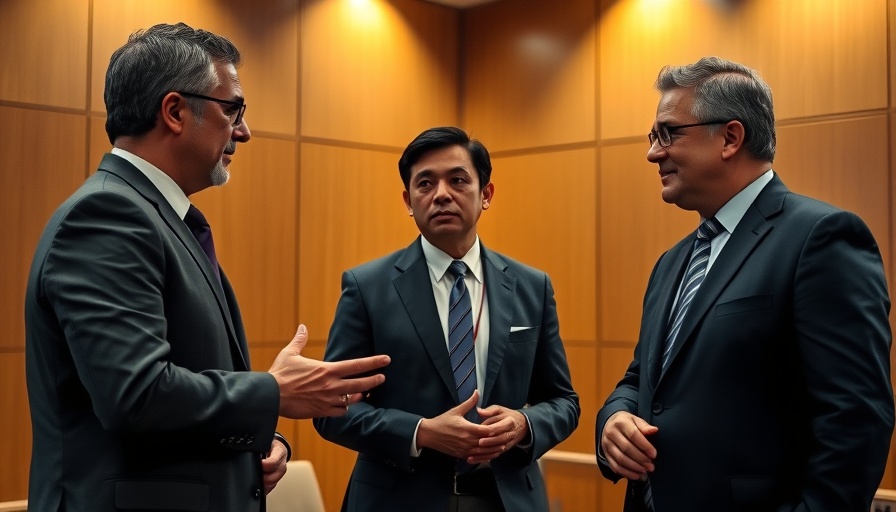
Florida's Redistricting Debate: A Critical Moment in Democracy
The recent actions by Florida lawmakers to form a committee aimed at redrawing the state's congressional district lines mark a significant shift in the political landscape. This mid-decade redistricting initiative is not only poised to align with partisan interests, but also challenges the traditional cadence of district alterations following every decennial census. Echoing this unfolding drama is the ongoing legal scrutiny surrounding Rep. Cory Mills, adding layers of complexity to an already volatile political atmosphere.
Breaking Tradition: Why Redistricting Matters
Historically, states redraw district lines every ten years after a federal census to ensure fair representation. However, Florida's Republican leadership, invigorated by recent redistricting successes in Texas, is considering a change. As House Speaker Daniel Perez stated, the Select Committee on Congressional Redistricting formed may lead to a more timely mapping, potentially skewing representation in favor of the GOP.
Critics, including Florida Democratic Party Chair Nikki Fried, argue that this move compromises democratic integrity. The urgency to redraw districts suggests underlying fears of electoral losses, raising questions about the motivations behind altering established protocols.
The Political Ramifications: Who Benefits?
As Florida considers these sweeping changes, one must ponder who stands to gain from this newly proposed congressional map. With growing concerns about representation from both state and national legislators, experts suggest that such initiatives benefit those currently in power. The risk of diminished voter trust looms as communities within Florida grapple with the implications of redistricting, potentially disenfranchising underrepresented groups in the process.
Parallel Battles: Cory Mills in Court
Amidst the redistricting discussions, Rep. Cory Mills faces legal challenges that further illuminate the complexities of Florida's political environment. Allegations against Mills have garnered significant media attention, shedding light on ethics and accountability within the state’s leadership. As this saga unfolds, it intertwines with broader narratives about governance, corruption, and the responsibility of public officials.
The court hearings not only impact Mills’ future but also reflect on the larger integrity of Florida’s political scene. As constituents watch these events develop, it raises critical questions about who is held accountable in the corridors of power and the lasting effects on voter perception.
Future Predictions: The Impact of Mid-Decade Redistricting
Experts predict that the mid-decade redistricting could have lasting implications beyond immediate electoral contests. As Florida’s political demographics evolve, the potential for shifting power dynamics in Congress increases. Should Republicans successfully redraw the maps to their advantage, the landscape of future elections might favor them, endangering balanced representation for years to come.
Furthermore, with Governor Ron DeSantis backing this initiative, the involvement of state leadership suggests a coordinated effort to cement GOP control, triggering a possible ripple effect that could inspire similar efforts in other states.
Conclusion: The Crucial Role of Public Engagement
As these events unfold, it becomes increasingly vital for Floridians to engage in the political process. Awareness of ongoing redistricting efforts and the legal challenges facing public figures like Rep. Cory Mills can empower voters to voice their opinions and advocate for equitable representation. The conversations around these issues will play an essential role not just in the upcoming elections but also in shaping the essence of democratic governance in Florida.
To stay informed and active, citizens should utilize platforms for dialogue, follow developments closely, and consider how their voices can influence policy decisions that ultimately affect their lives.
 Add Row
Add Row  Add
Add 



Write A Comment